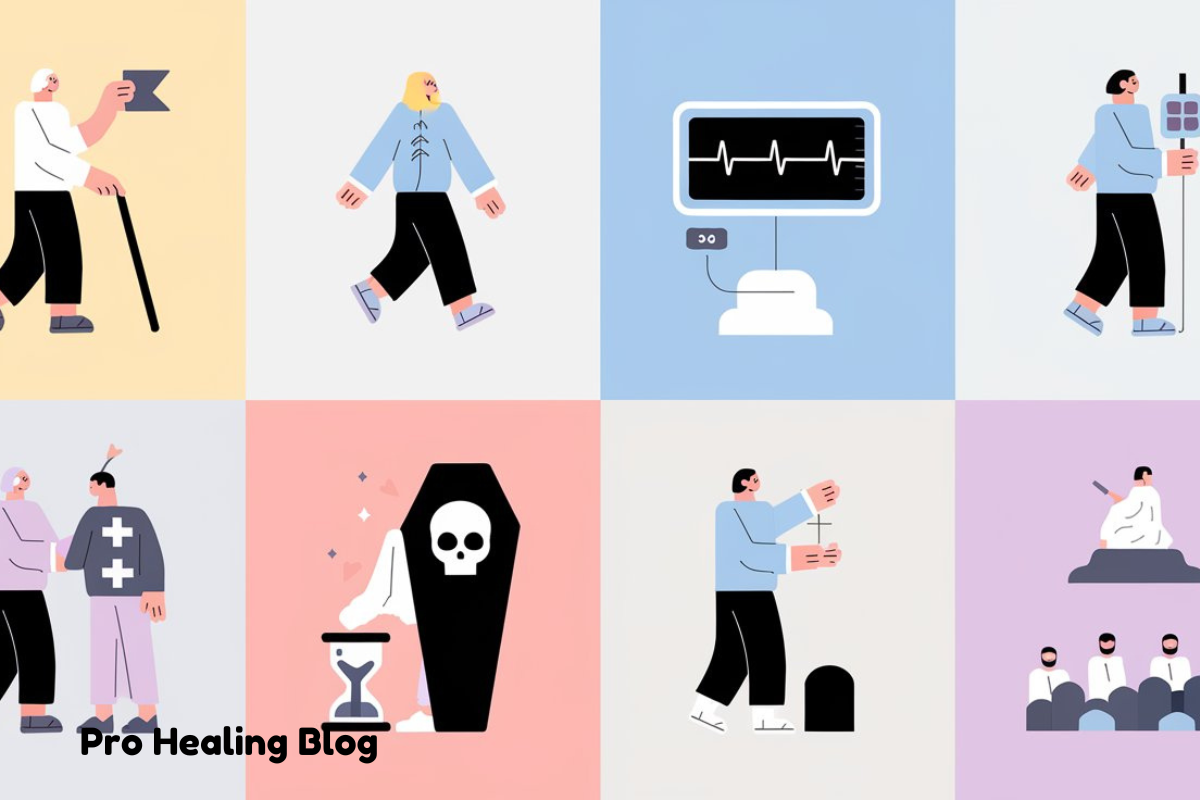Individuals and their loved ones are profoundly impacted by dementia, a progressive and deadly illness. As dementia progresses into its final stages, caregivers and families often find themselves wondering about the 10 signs death is near dementia. Understanding these indicators can aid in both practical and emotional preparation, guaranteeing the patient’s comfort and dignity in their last days.
This article will go over the ten main indicators that a dementia patient’s death is imminent, the possible emotional and physical changes they may go through, and how to give them compassionate care during this trying period.
Understanding Dementia and End-of-Life Stages
Conditions that result in memory loss, cognitive decline, and impaired reasoning are together referred to as dementia. This includes conditions including Lewy body dementia, vascular dementia, and Alzheimer’s.
See Also: PODN : Health and Tech Impacts Explored
The Final Stages of Dementia
As dementia progresses, people frequently lose the capacity to:
- Effectively communicate.
- Carry out routine activities such as eating and walking.
- Identify your loved ones.
What Happens to Dementia Patients Before They Die?
Physical weakness, trouble swallowing, increasing drowsiness, and social disengagement are common signs of end-of-life symptoms. Depending on the type of dementia, these symptoms may differ, but they usually follow a consistent pattern.
10 Signs Death Is Near Dementia
1. Increased Sleep and Fatigue
- People with dementia who are nearing the end of their lives may spend much of the day asleep.
- They become much less energetic.
- They can stop responding when you’re interacting with them.
2. Loss of Appetite and Difficulty Swallowing
- Drinking and eating get harder and harder.
- Patients may suffocate on liquids or food.
- Dehydration and weight loss are frequent.
3. Reduced Communication
- There is a considerable decline in verbal communication.
- Patients may become completely silent and rely only on nonverbal communication.
- Reactivity and eye contact sharply decline.
4. Changes in Breathing Patterns
- Long pauses and irregular breathing can occur (Cheyne-Stokes breathing).
- It is typical to breathe shallowly or laboriously.
- There may be gurgling or rattling sounds in the throat.
5. Increased Confusion and Restlessness
- Patients may exhibit signs of confusion, anxiety, or agitation.
- They may seem upset for no apparent reason, squirm, or tug at the bedding.
- These actions frequently reflect uneasiness or anxiety.
6. Skin Changes and Circulation Issues
- Particularly on the hands and feet, the skin may appear pale, blue, or mottled.
- The slowing circulation causes the extremities to feel cold to the touch.
- Pressure sores could appear.
7. Withdrawal from Surroundings
- Patients can lose the ability to identify loved ones.
- They may appear aloof or oblivious to their environment.
- There are fewer reactions to voice or touch stimuli.
8. Incontinence
- In the latter stages, loss of control over the bowels and bladder is typical.
- Caregivers may need to exercise caution when it comes to comfort and cleanliness.
9. Emotional and Spiritual Changes
- Patients may exhibit signs of dread and distress, or they may appear calm.
- They may talk about seeing departed loved ones or show signs of closure.
- A soothing atmosphere and emotional support are essential.
10. Body Systems Begin to Shut Down
- There is less hunger and thirst as a result of the slowing digestive system.
- Liver and kidney function deteriorates.
- The heart rate becomes erratic and blood pressure falls.
See Also: Low Sodium Cancer Symptoms: Health Impacts and Awareness
How Does Dementia Cause Death?
Although dementia doesn’t directly cause mortality, it weakens the body and leaves individuals more susceptible to other serious illnesses:
- Aspiration Pneumonia: Food or fluid getting into the lungs due to difficulty swallowing
- Sepsis: Infections from untreated pressure sores.
- Dehydration and Malnutrition: Caused by trouble eating and drinking.
The last stages of dementia are frequently brought on by these issues as well as a deterioration in the body’s defenses against infections.
Caring for a Dementia Patient Near Death
During the last stages of dementia, it is crucial to provide dignity and comfort.
1. Physical Comfort
- For support, use cushions and pillows.
- Use a moist cloth on the patient’s lips or tiny sips of water to keep them hydrated.
- To avoid sores, practice good skin hygiene.
2. Emotional Support
- Even if the patient is unable to answer, reassure them and speak softly.
- Play soothing tunes or sounds you are accustomed to.
- Keep the space calm and silent.
3. Medical Care
- For more about palliative care alternatives, speak with medical professionals.
- Medication for pain management could be required.
4. Support for Family and Caregivers
- Grief support and counseling can assist family members deal.
- Accept assistance from expert caregivers or hospice care.
Conclusion
Understanding the 10 signs death is near dementia can help families and caregivers prepare for the emotional and physical challenges of the final stages. Even while the path is unquestionably challenging, offering consolation, affection, and dignity during this time can have a big impact.
Do not be afraid to seek professional counseling and palliative care support if you or a loved one is dealing with end-stage dementia.
Every act of kindness and concern counts.
See Also: DIY Lip Scrub: Simple Recipes for Soft and Smooth Lips
FAQs
What happens to dementia patients before they die?
Patients with dementia often exhibit physical decline, difficulties swallowing, excessive sleep, and withdrawal.
What are the last signs of dementia before death?
Skin mottling, decreased appetite, severe exhaustion, uneven breathing, and emotional disengagement are typical symptoms.
How does dementia cause death?
Complications from dementia can be deadly and include aspiration pneumonia, infections, and malnourishment.
How to tell someone with dementia about a death?
Talk in plain, uncomplicated terms. If necessary, repeat material with patience. Don’t give them too much information at once.






